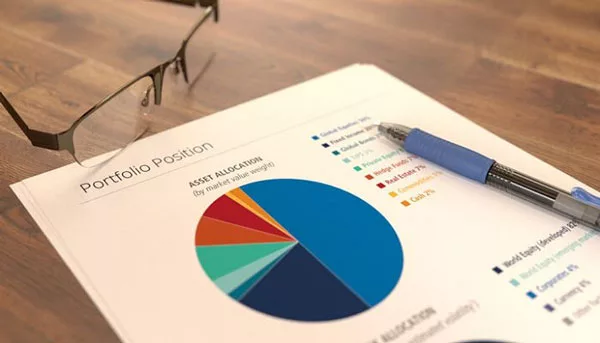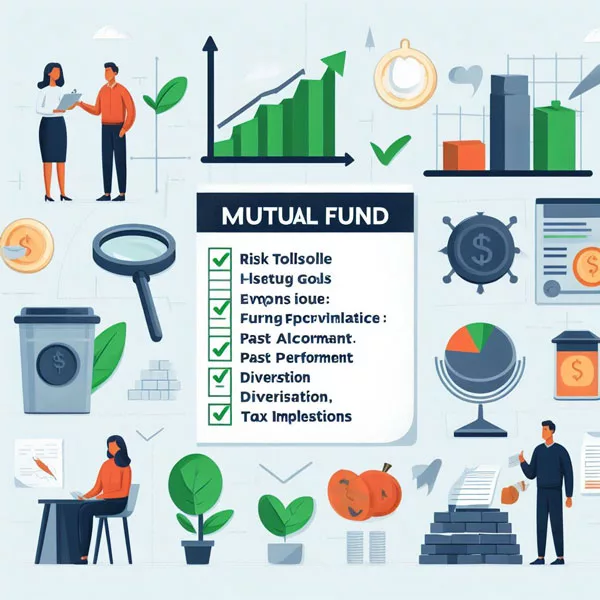ETFs vs. Mutual Funds for Seniors: The New Retirement Showdown
Table of Contents
- ETFs vs. Mutual Funds for Seniors
- Introduction
- Benefits of ETFs for Retirees
- Advantages of Mutual Funds for Seniors
- Diving Deeper: Tax Efficiency in ETFs
- Mutual Fund Distributions: Blessing or Curse?
- Expense Ratios: The Silent Eaters of Your Retirement Fund
- Liquidity and Trading Flexibility: The Financial Dance
- Portfolio Diversification with ETFs
- Active vs. Passive Management: The Great Debate
- Risks Associated with ETFs and Mutual Funds
- Best Mutual Funds for Retirement: The Senior Favorites
- Best ETFs for Retirement: The Golden Picks
- Conclusion
- A Little Wisdom for the Road
- A Cheeky Side Note
- Frequently Asked Questions
ETFs vs. Mutual Funds for Seniors
Ah, retirement! A time to kick back, relax, and… dive into the thrilling world of investment debates?
Just as you might argue passionately about the merits of “Golden Girls” over “MAS*H”, there’s a heated debate in the financial world: ETFs vs. Mutual Funds.
But fear not! We’re here to break it down and help you make the best choice for your golden years.
Introduction
Remember the days when the biggest decision was choosing between VHS or Betamax? Well, in the investment world, the debate between ETFs and Mutual Funds is somewhat similar, albeit with fewer VCRs involved.
Both are great ways to grow your wealth, but understanding the differences is key to a secure retirement.
Mutual funds and ETFs are among the most popular investment vehicles for retirement, offering diversification and professional management.
1. Benefits of ETFs for Retirees
ETFs, or Exchange Traded Funds, are like the cool, modern grandkids of the investment world. Here’s why they’re a hit for you in your retirement era:
- Flexibility in Trading: Unlike Aunt Martha’s rigid dinner timings, Exchange Traded Funds can be bought and sold throughout the trading day at current market prices on a stock exchange, just like stocks. The fund’s share price fluctuates in real time as ETFs trade, which means you can react to market changes instantly.
- Lower Expense Ratios: Think of this as you getting the discount every time! With generally lower fees, you keep more of your money.
- Tax Efficiency: Through some financial wizardry (known as the “in-kind” redemption process), ETFs often have fewer taxable events. That means more money for your retirement adventures and less for Uncle Sam.
This real-time trading flexibility is a key advantage for exchange traded fund investors, as ETFs trade like stocks at market prices, offering more control and transparency compared to mutual funds.
2. Advantages of Mutual Funds for Seniors
Mutual Funds are the classic, time-tested favorites—like those age-old family recipes. Here’s why they still hold their charm even in your golden years:
- Professional Management: It’s like you are having a personal chef for your finances. A fund manager at a fund company oversees the investments, making decisions to help your portfolio grow.
- Automatic Investment: Set up regular contributions, and voila! It’s the financial equivalent of a slow cooker meal. All you have to do is sit back, relax, and enjoy.
- Diversification: With one purchase, you spread your investment across various assets. It’s like having a buffet spread where you sample a bit of everything! You heard it – never put all your eggs in one basket.
Many mutual funds are actively managed mutual funds, where the fund manager aims to outperform benchmarks. A mutual fund investment often requires a flat dollar amount as a minimum initial investment, set by the fund company.
3. Diving Deeper: Tax Efficiency in ETFs
ETFs have a secret sauce that makes them tax-efficient. This “in-kind” redemption process ensures that they rarely need to sell underlying investments, which helps avoid realizing taxable gains. The ETF manager, or ETF managers, oversee this process to minimize the need for selling securities and thus reduce taxable gains for investors. For seniors, this means potentially lower tax bills and more funds for that dream cruise or golf club membership.
4. Mutual Fund Distributions: Blessing or Curse?
While mutual funds often distribute profits, these can come with tax implications. When investors redeem or are selling shares of a mutual fund, the fund may need to sell securities to meet these redemptions. This process of selling securities can trigger capital gains tax, which is then passed on to all shareholders. The overall mutual fund investment structure can lead to more frequent taxable events, as the fund’s need to sell securities when investors are selling shares may result in capital gains distributions. It’s essential to understand these distributions and plan accordingly. After all, who wants a surprise tax bill? Not me, and I bet not you either!
5. Expense Ratios: The Silent Eaters of Your Retirement Fund
Imagine a sneaky mouse nibbling away at your cheese stash. That’s what high expense ratios can do to your investments. On average, ETFs tend to have lower expense ratios than mutual funds, but always check and compare. Every penny counts, especially when it’s going towards spoiling the grandkids!
6. Liquidity and Trading Flexibility: The Financial Dance
ETFs boogie to the beat of the stock market. They trade throughout the day, just like individual stocks, and you can buy or sell them anytime the market is open through a brokerage account. That gives investors flexibility and liquidity—plus, many platforms now offer commission-free ETF trading.
Mutual funds, on the other hand, move to a slower rhythm. They only trade once per day, after the market closes, at a single price set at that time.
So, depending on your style, you might enjoy the fast-paced quickstep of ETFs or the steady waltz of mutual funds.
7. Portfolio Diversification with ETFs
Diversifying with ETFs is a lot like showing up to an international potluck dinner—you get a little taste of everything without having to cook it all yourself.
ETFs give investors the chance to spread their money across a wide range of asset classes: stocks, bonds, commodities, real estate, and more. Just like mutual funds, ETFs hold a basket of different securities, making them a simple way to build a well-rounded portfolio.
From U.S. bonds to emerging market stocks, from gold to commercial real estate—there’s an ETF for almost anything you can imagine. Think of it as a smorgasbord of investment opportunities, all neatly packaged and ready to serve.
8. Active vs. Passive Management: The Great Debate
When it comes to investing, some people like to be in the driver’s seat, while others are happy to switch on cruise control.
Most mutual funds fall into the “active” category. These funds are run by professional managers who use different strategies in an effort to beat a market benchmark, like the S&P 500. The idea is that their expertise and research can generate higher returns.
Many ETFs, on the other hand, take a more “passive” approach. Instead of trying to beat the market, they aim to simply match it. A passive ETF tracks a specific index—like the S&P 500—and requires very little hands-on management. Index funds and index mutual funds work the same way, typically offering lower fees and greater tax efficiency since they’re just following the market.
Deciding between active and passive funds (or mixing both) really comes down to your personal goals, your tolerance for risk, and how involved you want to be in your investment strategy.
9. Risks Associated with ETFs and Mutual Funds
Every investment has risks. Whether it’s market volatility, interest rate changes, or economic downturns, it’s essential to be aware and prepared. In addition to general market risks, there may be additional risks associated with specific investment vehicles and strategies, such as those found in mutual funds and ETFs. The suitability of ETFs and mutual funds depends on the investment objectives and risk tolerance of each particular investor. Remember, a well-informed investor is a successful one!
10. Best Mutual Funds for Retirement: The Senior Favorites
From growth-focused funds to those prioritizing stability, there’s a mutual fund for every retirement dream. We’ve curated a list of top-performing funds that have consistently delivered results.
11. Best ETFs for Retirement: The Golden Picks
ETFs offer a world of possibilities. Whether you’re looking for sector-specific investments or broad market exposure, there’s an ETF out there for you. Dive into our handpicked selections that promise a blend of performance and security.
Conclusion
The ETF vs. Mutual Fund debate is like choosing between a classic vinyl record and a modern streaming service. Both have their unique charm and benefits.
For seniors, it’s all about individual financial goals, risk tolerance, and investment preferences.
A Little Wisdom for the Road
Remember, investing is a marathon, not a sprint. It’s about the long game, ensuring you have a comfortable nest egg to enjoy all the joys of retirement.
Whether you’re sipping margaritas on a beach, taking up a new hobby, or simply spending quality time with loved ones, the right investment choices can make your golden years truly golden.
A Cheeky Side Note
And hey, if all this talk of ETFs, Mutual Funds, and investments has your head spinning, just think of it as choosing between different flavors of ice cream.
Some days you might crave the rich taste of chocolate (a steady mutual fund), and other days you might want to try that new exotic flavor (a shiny new ETF). The key is to enjoy the journey and the returns!
Frequently Asked Questions
What’s the main difference between an ETF and a Mutual Fund?
ETFs are traded like stocks on an exchange, allowing for buying and selling throughout the trading day at fluctuating prices. Unlike ETFs, mutual funds are not traded on a stock exchange and are only priced once per day at the day’s closing net asset value (NAV). This means that funds and ETFs, or mutual funds and ETFs, have different trading mechanisms and pricing structures, with ETFs offering more trading flexibility and real-time pricing compared to mutual funds.
Are ETFs more tax-efficient than Mutual Funds?
Yes, due to their structure, ETFs often have tax advantages over mutual funds. They typically generate fewer capital gains because they can swap out securities in-kind without triggering a taxable event.
Which is more cost-effective: ETFs or Mutual Funds?
ETFs usually have lower expense ratios than mutual funds. However, when trading ETFs, you might incur brokerage commissions, which can add to the cost. In addition to trading commissions, consider fund expenses, which are set by the fund company and can vary between ETFs and mutual funds. Always compare the total costs of both before investing.
Can I invest in both ETFs and Mutual Funds in my retirement account?
Yes! Many investors diversify their portfolios by including both ETFs and Mutual Funds. Both of these products are offered by investment companies, so choose reputable providers when adding them to your portfolio. It’s important to balance based on your risk tolerance and investment goals.
Are Mutual Funds better for regular, automated investments?
Yes, for those who prefer setting up automatic monthly investments, mutual funds might be more suitable because they often allow for automatic investments without additional trading costs. Mutual funds are also great for dollar cost averaging, which lets investors invest a fixed amount at regular intervals to help manage risk and build wealth over the long term.
How do I choose the best ETF or Mutual Fund for retirement?
Consider your risk tolerance, investment goals, the fund’s performance, expense ratio and the company managing it. Making an investment decision involves evaluating your goals, risk tolerance and the fund’s characteristics. Consult a financial advisor for personalized advice.
What are the risks of ETFs and Mutual Funds?
Both ETFs and Mutual Funds have market risks. The value can go up or down based on market conditions. Specific risks vary based on the assets they hold. Read the fund’s prospectus to understand its risk profile.
How do dividends work with ETFs and Mutual Funds?
Both ETFs and Mutual Funds can distribute dividends to investors. For ETFs, dividends are paid directly to shareholders. Mutual Funds might reinvest dividends or distribute them to investors.
Are there minimum investment requirements for ETFs and Mutual Funds?
ETFs have no minimum investment requirements beyond the cost of one share. Mutual Funds have minimum initial investment requirements which vary from one fund to another.
Can I convert my Mutual Fund shares to ETFs or vice versa?
Direct conversion is not possible. You’d need to sell your shares in one and then buy shares in the other which could have tax implications.
How do I track my ETF or Mutual Fund performance?
Both ETFs and Mutual Funds provide regular performance reports. You can also track their performance through financial news, their websites or investment platforms.
Are there age-specific considerations for seniors when choosing between ETFs and Mutual Funds?
Seniors closer to or in retirement might prioritize low-risk, income-generating investments. Depending on their goals they might lean towards bond ETFs or mutual funds or those focused on dividend-paying stocks. Always consider your situation and consult an advisor.
How do “Bond Ladders” fit into the ETF vs. Mutual Fund debate for seniors?
Bond ladders involve buying bonds that mature at different times, providing income and return of principal over time. Both ETFs and Mutual Funds offer bond-focused options, so seniors can use either (or both) to build a bond ladder strategy.Bond ladders involve buying bonds that mature at different times, providing income and return of principal over time. Both ETFs and Mutual Funds offer bond-focused options, so seniors can use either (or both) to build a bond ladder strategy.
What about “Active vs. Passive Management”?
Active management involves a manager making specific investment decisions to outperform the market. Passive management simply tracks a market index. ETFs are often passively managed, while Mutual Funds can be active or passive. The choice depends on your investment philosophy and cost considerations.
How do I get started with ETFs or Mutual Funds?
You can start by opening an account with a brokerage or through a financial advisor. Once your account is set up, you can choose the specific ETFs or Mutual Funds you want to invest in based on your research or recommendations.
Do you have any ETF or Mutual Fund recommendations for seniors?
We can’t provide specific investment advice but look for funds with a good track record, low fees and aligned with your investment goals. Consult a financial advisor for personalized advice.



